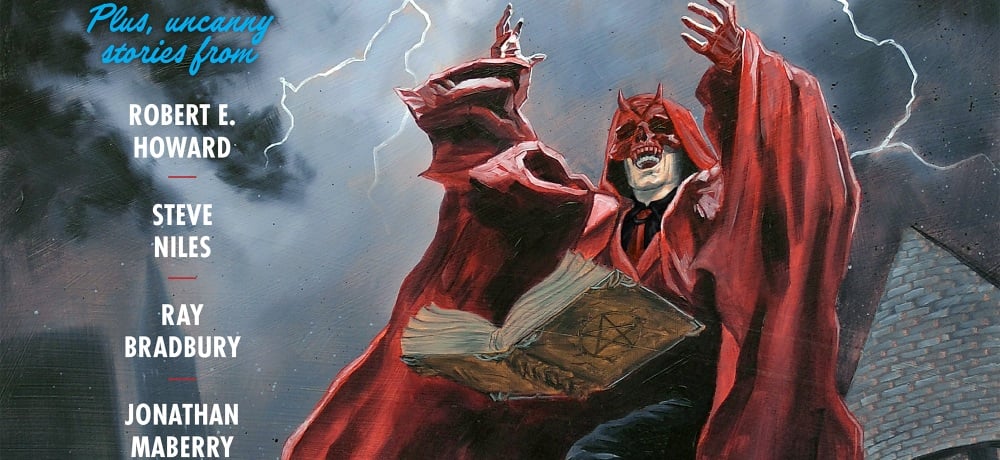






The early ‘70s were really just the hung over ‘60s; idealism had turned to realism as Vietnam marched on and acid dreams turned to lysergic comedowns. And that cutting pall was definitely there in the mainstream culture; TV sitcoms like All in the Family took on bigotry and racism with a sharpened blade and cynical tongue. Meanwhile in the underground, transgressive art was alive and well and still hitting its marks; sordid, seedy, and sprinkled with a devious sense of humor, Paul Bartel’s feature length debut Private Parts (1972) tried to bring that sensibility above ground to an audience not quite ready for its peculiar charms.
Released in September by MGM (!), Private Parts (AKA Blood Relations, Bartel’s original title) never even received much of a chance to offend mom and pop, as the title prevented it from being advertised in several newspapers and it quickly faded away. Such would be the directorial course of much of Bartel’s career (with the exceptions of Death Race 2000 and Eating Raoul, both doing quite well), who would find greater success as a reliable character actor in a ton of cult films. But his start in the New York underground of the ‘60s (see: The Secret Cinema short from ’68) guaranteed that whatever he did, his quirky sensibility would usually shine through. Private Parts is no exception.
Let’s meet 16 year old Cheryl (Ayn Ruymen – Circle of Fear), who as the movie opens is busy snooping on her older roommate Judy (Ann Gibbs – Dear Dead Delilah) having sex with her boyfriend. Fed up with weirdo Cheryl’s peeping she kicks her out of the apartment, but not before Cheryl steals Judy’s money. Cheryl roams the streets of L.A. before checking in with her aunt Martha (wonderfully played by Halloween II’s Lucille Benson), who runs the less than luxurious King Edward Hotel. Granted a room, Cheryl is under strict orders from Martha not to wander around too much, lest she break a cardinal rule of horror films.
So off Cheryl wanders, and becomes the object du adulation of George (John Ventantonio – Circle of Fear), a tenant with a proclivity for porn, photography, and water-filled sex dolls; George uses every opportunity (and peephole) to spy on Cheryl, and as she discovers this, she finds herself being erotically charged over the thought. The only problem is, tenants are dropping like rats; is George a mostly harmless peeper, or is Cheryl enamored with a killer?
Private Parts posits itself on the surface as a thriller; clearly modeled after Psycho and other fashionable modern day gothics, it does play by those (even then) antiquated rules – somewhat. A beheading here, a knifing there, but that’s just the skeletal story structure; a way for Bartel to entice audiences to watch, or at least not flee the theater in disgust.
Aesthetically speaking, he really does draw them in; Private Parts is a pretty good looking film, well shot by future The Fugitive director Andrew Davis, with the look and feel of heightened grandma drama of the day. (Think of all the Whatever Happened To? movies and you’re on the right track.) Clearly MGM was looking to capitalize on this trend, but perhaps they should have screened it before shipping it out.
This is a film intended, as the rating goes, for “mature audiences”. Boy oh boy, is it. While it’s heartening to know that the content within would be considered tame by today’s standards, the intent is sadly not. Private Parts takes a look at the underbelly of sexual desires, at least by mainstream standards; these are characters marginalized by society – a priest who regularly dallies in leather wear, the voyeurism displayed by George – yet lovingly embraced by Bartel and screenwriters Philip Kearney and Les Rendelstein. As they should be; after all, if you’ve seen even one of these films you know damn well that the killer will be the most “normal” of all the suspects. And in this case, we actively root for, or at least appreciate, the heroes we’re given. Some may have trouble with Cheryl being 16 and sexualized (actress Ruymen was 25 at the time), but other than a short bathing scene it’s more about her curiosity towards sex than her being exploited for it. A decidedly more European attitude to be sure, but one that focuses more on Cheryl’s awakening and much less on the male gaze; credit is due then to Ruymen’s sympathetic portrayal as our conflicted yet headstrong heroine.
The film is knee deep in sexual morass; gender suppression plays out as part of the finale (beating a certain camping slasher by over a decade), but is played for sympathy rather than shock value. (And it should be noted, one quite good subversive laugh.) Again, whereas most horror films often make the “other” the villain, Bartel begs us to see these people as we see ourselves; flawed, with dreams and hopes like anyone else. Perhaps all of us don’t shoot blood-filled hypodermic needles into irrigated love dolls, but nobody’s perfect, right?
Private Parts is available on DVD from Warner Home Video.
Next: Drive-In Dust Offs: HORROR HIGH (1973)